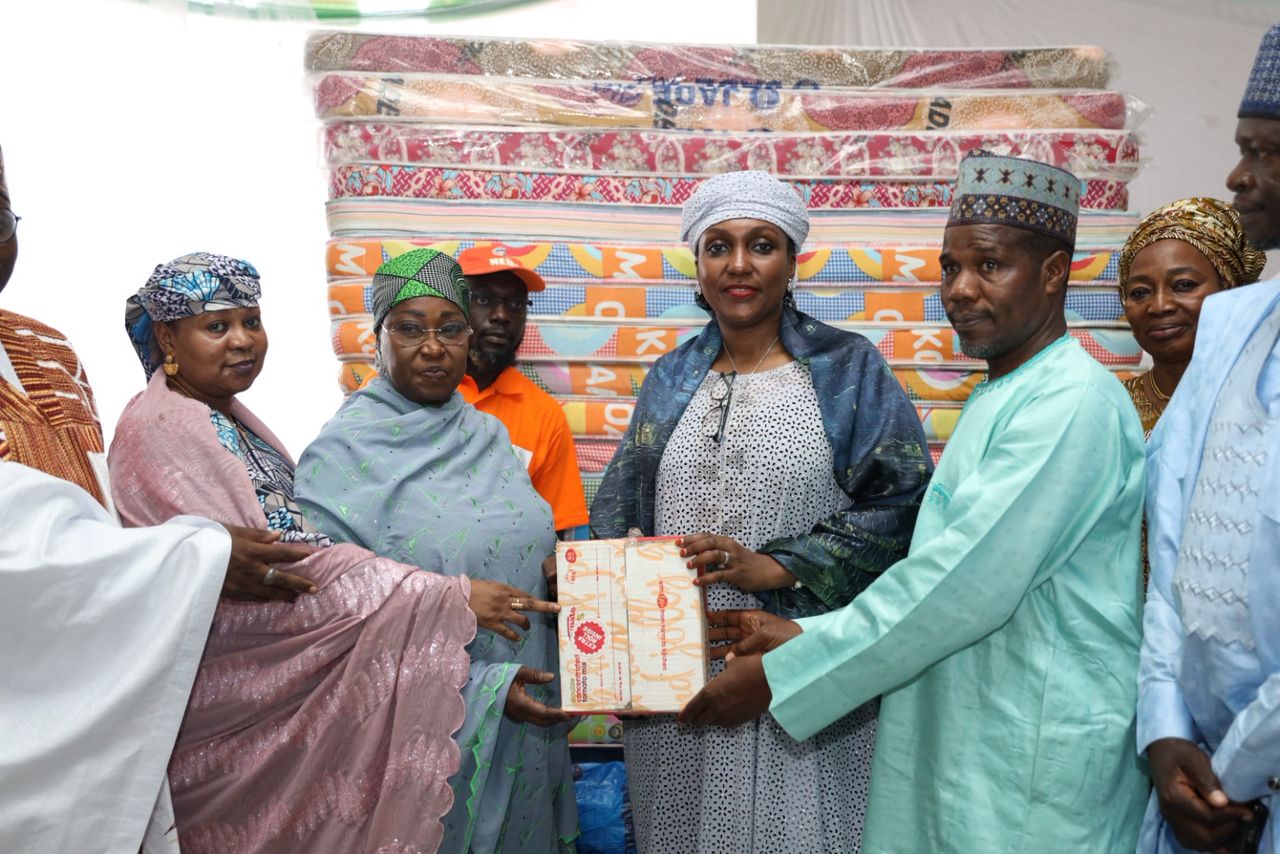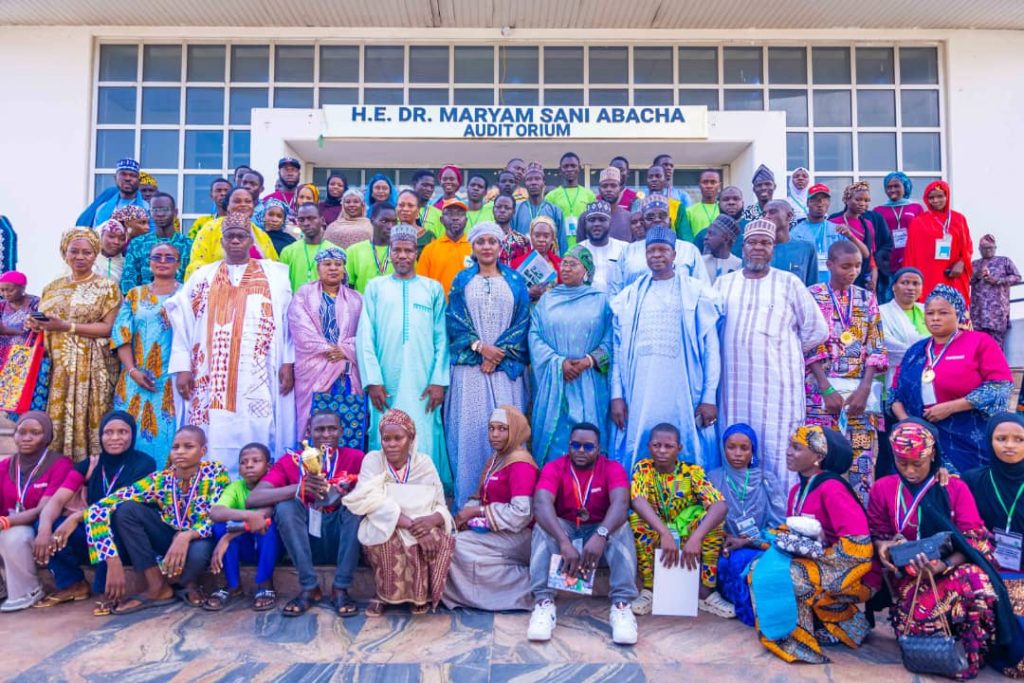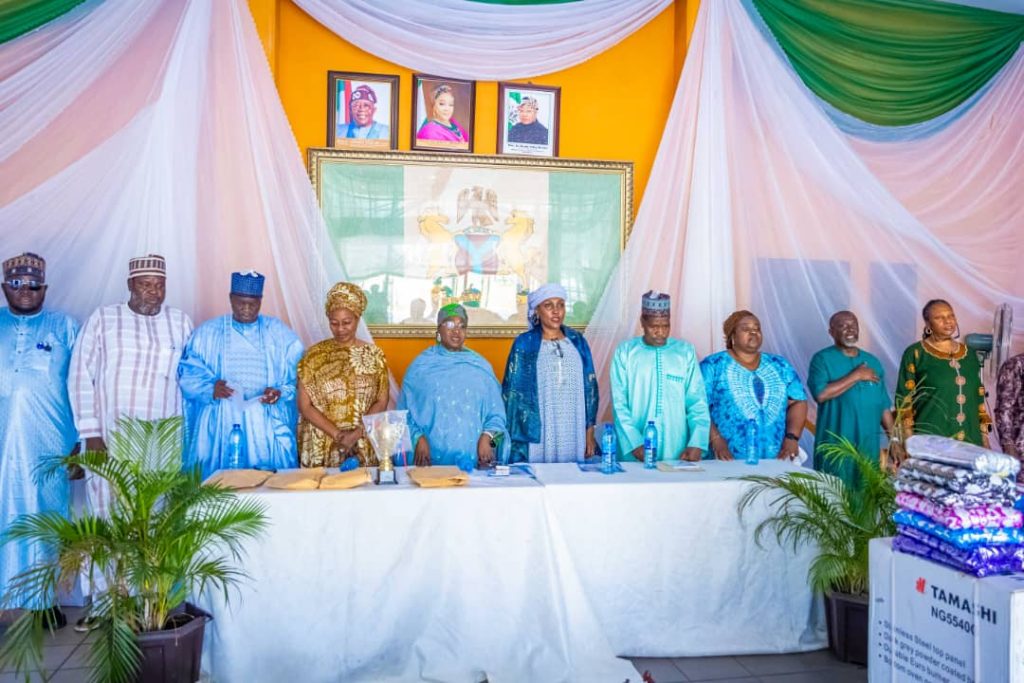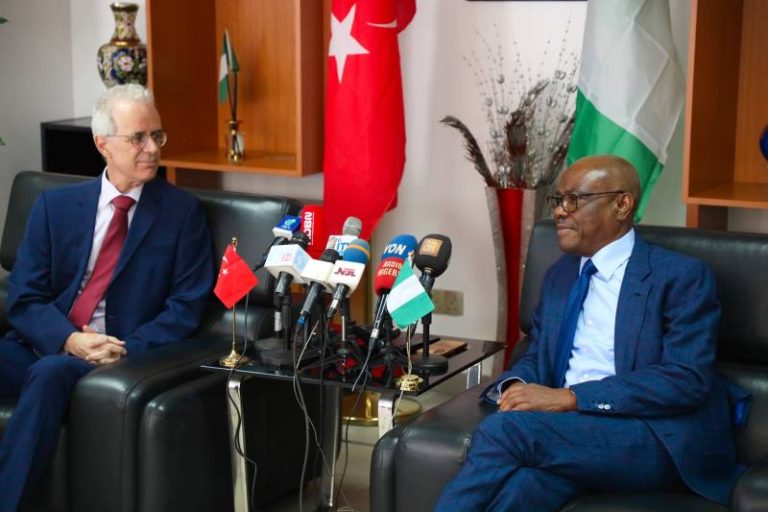
The Director General of the National Emergency Management Agency (NEMA), Mrs. Zubaida Umar, has reiterated the Agency’s commitment to supporting initiatives that promote resilience and economic empowerment among Internally Displaced Persons (IDPs) and other vulnerable groups across the country.
She made the remark on Saturday in Abuja during the graduation ceremony of 200 beneficiaries of a vocational skills training programme organized by the Maryam Babangida National Centre for Women Development (MBNCWD). The beneficiaries comprised IDPs and young people from communities affected by insecurity and socio-economic challenges.

In her goodwill message, Mrs. Umar emphasized that effective emergency management goes beyond disaster response to include long-term recovery and empowerment.
“Emergency management goes beyond responding to disasters; it is also about building resilience, restoring hope, and supporting sustainable livelihoods for those affected by crises—especially our vulnerable populations, including women, youth, and displaced persons,” she stated.
According to the Head, Press Unit, NEMA, Manzo Ezekiel, the NEMA boss commended the Maryam Babangida Centre for its sustained efforts in promoting skills acquisition as a tool for empowerment and poverty reduction. She urged the graduating trainees to utilize their newly acquired skills productively to uplift their communities and contribute to national development.

As part of its support for the programme, NEMA provided livelihood support materials to the beneficiaries and the Centre to help sustain the gains of the initiative.
Mrs. Umar reaffirmed that the Agency will continue to collaborate with relevant institutions and development partners to strengthen community resilience and reduce vulnerability nationwide.
“Empowering IDPs and vulnerable persons remains central to building a safer and more resilient Nigeria,” she added.
In her remarks, the Director General of the Maryam Babangida National Centre for Women Development, Dr. Vilita Asabe Bashir, commended NEMA for its partnership and consistent support. She described the Agency’s collaboration as a demonstration of its deep commitment to humanitarian service and disaster management.

Dr. Bashir explained that the empowerment programme was designed to equip IDPs and other vulnerable individuals with vocational and entrepreneurial skills to enhance their self-reliance and reduce exposure to social risks.
The event also featured goodwill messages and testimonies from participants and stakeholders, who praised the Federal Government and partner agencies for their efforts in promoting sustainable livelihoods through skills development and empowerment.



